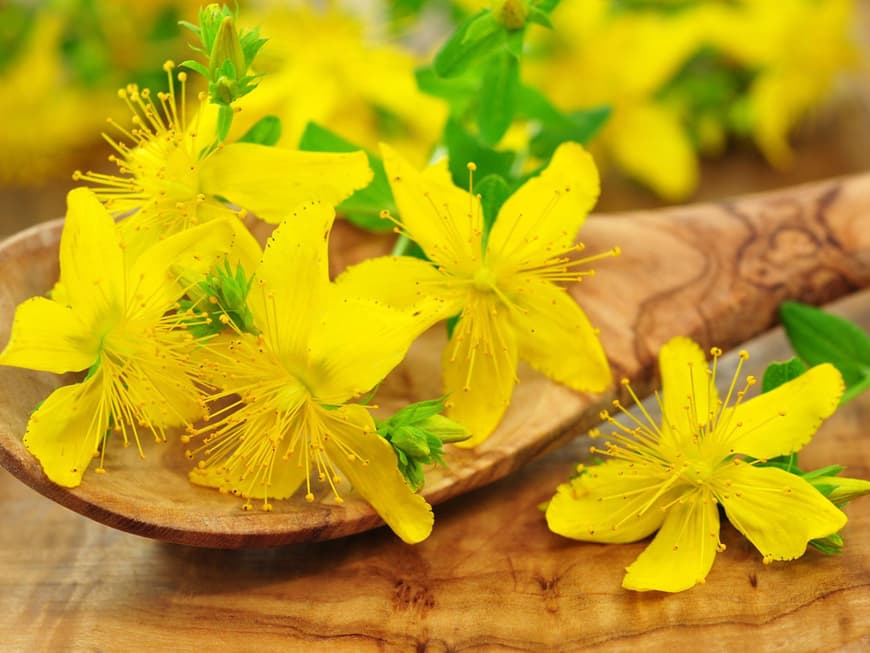
A tried and tested remedy
The effects of St. John's wort have been known for over 2,000 years. While it was initially only used to treat wounds, gout, rheumatism and witches' sores, herbalists in the Middle Ages also successfully used St. John's wort to treat anxiety and mood swings.
St. John's wort for skin diseases and as an antidepressant
The medicinal plant grows up to one meter high and flowers from June to September. Apart from the root, all parts of the plant are used in medicines. The hyperforin it contains, among other things, has an anti-inflammatory and antibiotic effect. In the form of St. John's wort oil, for example, it helps with skin conditions such as psoriasis or neurodermatitis. The dye hypericin is used in antidepressants.
Interaction of St. John's wort with medication
Whether as an oil or tablet, St. John's wort can influence or even change the effect of other medications. You should therefore always talk to your GP before taking it.
You may also be interested in this:
Natural remedies for rheumatism: poison ivy alleviates symptoms
Depression: A certain diet can help
We rely on natural medicine: The 7 best germ killers from the plant kingdom
The great herbal pharmacy: Gentle helpers from nature
Alternative healing methods: What really helps?
Natural remedies: The right Bach flowers and globules for every complaint
Beauty boosters from nature: milk for skin and hair
Sea buckthorn: healthy superfood from the homeland






